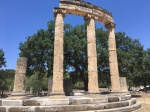LIBER2017 offered a number of different perspectives on re-shaping the library around research support in the widest sense.

Leeds University Library has taken the route followed by a number of RLUK libraries in moving away from a team of subject specialists to a functionally based model in which staff focus on either research or teaching and learning support. Feedback on the success of this approach is mixed so it was useful to hear the perspective of Dr Eleanor Warren from the Leeds University Library research support team, who looked at the skill sets needed for research support and how well LiS qualifications prepared library staff for this role in comparison with a research degree. Eleanor compared the skill sets of professional library staff in the White Rose Libraries (Leeds, Sheffield York) and those researchers who, like her, had joined a library team after completing a PhD, and their relative levels of confidence in supporting researchers. She found a surprisingly high level of match between the skills identified in the Vitae Researcher Development Framework and those needed by librarians: they included
- Enthusiasm/commitment to research
- Project planning and delivery
- Critical thinking
- Problem solving, creativity and the ability to seek solutions
- Ability to work under pressure/perseverance
- Ease with the developing digital environment
- Teaching
- Leadership and influence
Surprisingly, just 59% in White Rose Libraries had LIS qualifications. 46% were in their first job in the sector and 87% had been in their current role for fewer than five years, suggesting a relatively young staff profile with a high turnover.
Only 9% of library professionals felt that their qualifications had fully equipped them to work with researchers and 27% not at all, compared with 29% of PhD graduates feeling fully equipped and 14% unequipped. There was still a good deal of middle ground in the two groups and I wondered whether this was a case of researchers generally having more confidence in their abilities.
However, when asked about a specific information skills set that included Information Seeking, Information Literacy, IPR and Copyright, Teamwork and Collaboration, Public Engagement and Fundraising, those with LiS qualifications overwhelming reported that they had formed part of their qualification training while the PhD graduates were less likely to do so.
On a second set of skills relating to research support and roughly matching the Vitae Researcher Framework, it was the PhD graduates who reported that they were well covered within their training.
Much of this is unsurprising, given the focus of library professional education but it points to areas where the core LiS skills need to be supplemented to enable library staff to support researchers with confidence, either by providing staff with the experience of working within research teams, perhaps in embedded librarian roles, or having mixed teams of LiS professionals and recent PhD graduates.
Eleanor Warren’s presentation slides can be found at http://liber2017.lis.upatras.gr/wp-content/uploads/sites/6/2017/04/12.1.pdf